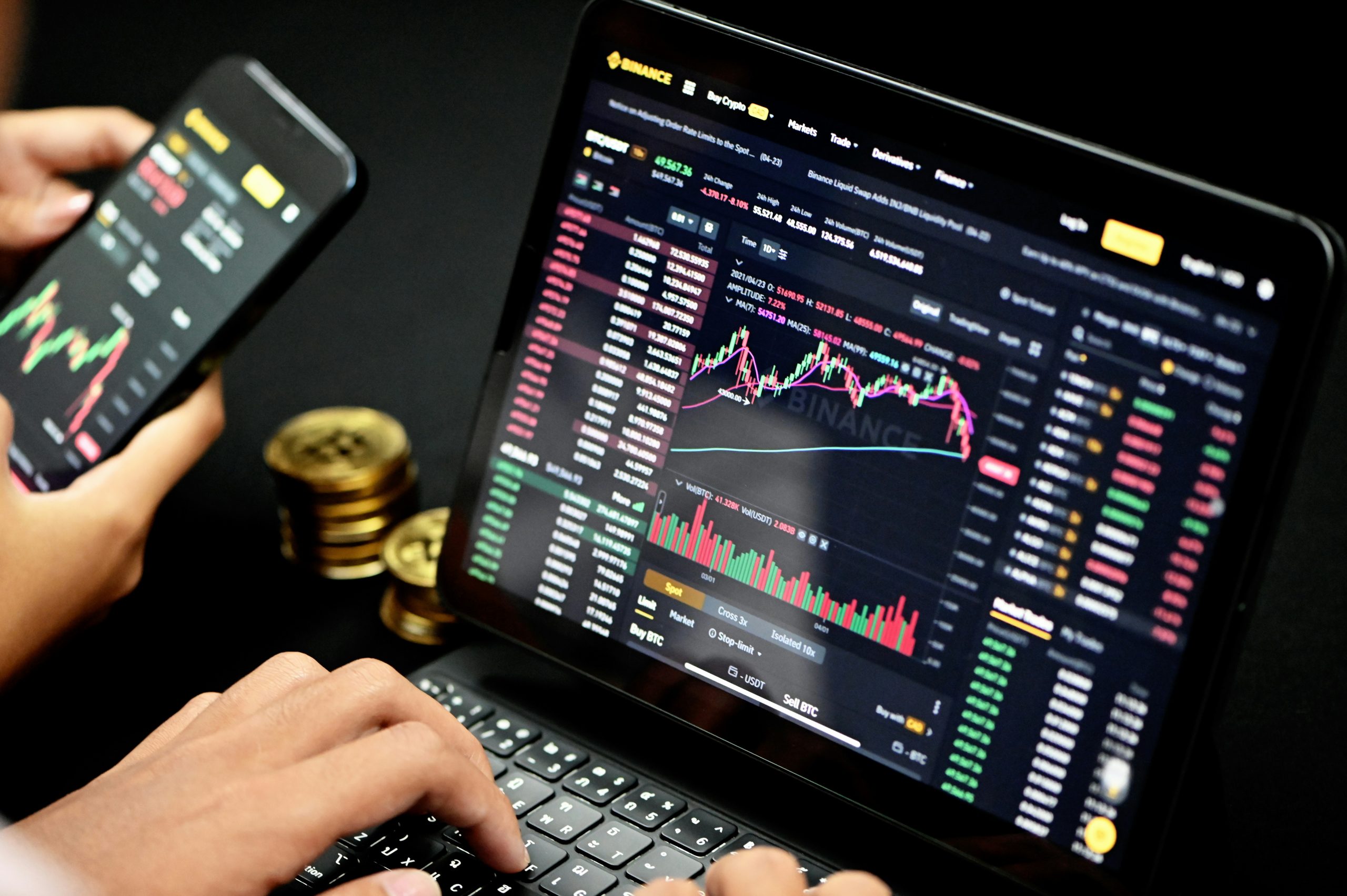How to Use VPN to Buy Crypto and Secure Your Binance Assets
Cryptocurrencies are perhaps the hottest topic of recent years, being a technological innovation and a significant component of the global financial system. The volume of cryptocurrency transactions has increased in parallel with the individuals and institutions adopting digital currencies like Bitcoin, Ethereum, and other altcoins. The number of crypto users is expected to hit 328.80 million by 2028. In 2024, about 18.78% of people will be actively employing it, which is predicted to grow to 22.20% by 2028, as Forbes claims. Still, with this growing adoption comes increased scrutiny and risks, making privacy and security a solid concern for anyone engaged in cryptocurrency trading and investment.
Virtual Private Networks (VPNs) come in handy as essential tools for boosting online privacy and security. Within cryptocurrency transactions, VPNs play an integral part in protecting users from various cyber threats and guaranteeing the confidentiality of their financial activities. Reading this article, you’ll discover the importance of privacy and security in cryptocurrency transactions, learn how VPNs work, and gain practical advice on using VPNs to safeguard your crypto assets on platforms like Binance.
The Importance of Privacy and Security in Cryptocurrency Transactions
Cryptocurrency transactions are initially sensitive because of their financial nature and the potential implications of compromised data. In contrast to traditional banking systems, cryptocurrencies operate on decentralized networks where transactions are recorded on public ledgers known as blockchains. While these ledgers offer transparency and immutability, they do not inherently protect user privacy.
What are the core risks of unsecured internet connections during cryptocurrency transactions?
- Surveillance. Governments, ISPs, and malicious actors can monitor internet traffic, potentially identifying users engaged in cryptocurrency transactions;
- Tracking. Online activities can be monitored via IP addresses and other digital footprints, compromising the anonymity of your crypto manipulations;
- Hacking. Unsecured connections are vulnerable to hacking attempts, like man-in-the-middle attacks, where hackers intercept and potentially alter transactions.
In practice, according to research from Comparitech, there were 198 reported instances of crypto theft in 2022, marking a 45% increase from the 136 cases reported in 2021. Given these risks, adopting robust security measures to protect your cryptocurrency transactions is crucial. October 2022 was the single biggest month ever for cryptocurrency hacking, with 32 attacks resulting in losses exceeding $775 million.
Understanding VPNs and Their Benefits
What is a VPN? VPN sets an encrypted and highly secure connection over the internet between your device and a remote server operated by the VPN service. This encrypted tunnel guarantees that all data transmitted between your phone or computer and the VPN server is not subject to interference and remains secure, saving it from leaks and interception.
Key Benefits of VPNs
- Privacy and anonymity. VPNs mask your IP address, making it a challenge for third parties to trace your online activities back to you. Maintaining anonymity is vital when talking about cryptocurrency transactions, which makes a VPN essential.
- Encryption. VPNs use strong encryption protocols like IKEv2, WireGuard, and OpenVPN to secure your internet traffic, protecting it from hackers and other malicious actors. Ciphering makes sure that even if your data is intercepted, it remains unreadable.
- Circumvent restrictions. VPNs allow you to connect to servers in different locations, not only delivering the highest security connection but also handling geo-restrictions and accessing cryptocurrency exchanges and services that may be blocked in your region. To illustrate, Binance’s main platform remains restricted for American users due to U.S. regulatory constraints. This is where Binance VPN comes into use.
How VPNs Enhance Security in Cryptocurrency Transactions
Let’s find out how the VPN crypto service can make your financial experience more secure.
Ensuring Privacy in Cryptocurrency Transactions
In the cryptocurrency sector, the nature of blockchain transactions is “public” from the start. Each transaction is recorded on a transparent and immutable ledger so that sophisticated actors can trace and link transactions to specific individuals. VPNs ensure enhanced privacy by masking your IP address, which is a primary identifier used to monitor online activities back to an individual. By routing your internet traffic through a secure server and encrypting all data, VPNs make it nearly impossible for third parties to extract your crypto activities. This advanced layer of anonymity helps ensure that your identity remains concealed when you engage in cryptocurrency transactions, thus protecting your digital assets from potential threats.
Guarding Against Transaction Surveillance
Surveillance by ISPs, governments, and cybercriminals poses a significant threat to the security of cryptocurrency transactions. Such entities can track and analyze unencrypted internet traffic, potentially identifying and tracking your financial activities. Crypto VPN can provide robust protection against such surveillance by ciphering all data transferred between your device and the VPN server. Encryption guarantees the unreadability of your data in all scenarios and the worst ones (in case it’s intercepted) as well. Moreover, VPNs mask your actual IP address, further obscuring your online identity and making it nearly impossible for surveillance entities to catch your activities. A dual layer of security is critical for maintaining the confidentiality of your cryptocurrency transactions and protecting your financial privacy.
Unrestricted Access to Cryptocurrency Exchanges
Geo-restrictions set by cryptocurrency exchanges can limit your ability to access and trade digital assets based on your geographic location. For instance, the U.S. government’s restrictions can prevent you from using the Binance exchange. By using a VPN for Binance, you can access this platform with no limitations and use its functionality to its full potential. You may also face some challenges accessing your accounts when traveling abroad. VPNs cater to these cases by allowing you to connect to servers in different countries, effectively circumventing these limitations. By connecting through a server in a country where the exchange is available to use, you can gain unrestricted access to your preferred trading platforms. This way, with a VPN, you obtain flexibility that ensures you can manage and trade your cryptocurrencies from anywhere in the world without being hindered by location-based restrictions. Furthermore, using a crypto VPN can avoid potential local regulatory scrutiny, enhancing your ability to participate freely in the global cryptocurrency market.
Considerations When Choosing a VPN for Cryptocurrency Transactions
How to choose the best VPN for crypto trading? Here are some indicators to ease your decision-making process.
Reliability and Reputation
When considering a VPN provider for securing your cryptocurrency transactions, we highly suggest prioritizing services with a strong reputation for security and privacy. Opt for VPNs that provide advanced and guaranteed security measures and time-tested privacy practices. Look for transparency in privacy policies, ensuring that the VPN provider does not log user activity or share data with third parties. A VPN with a proven track record in protecting user privacy and maintaining robust security standards is the best strategy to save your financial transactions.
Encryption Strength
The strength of encryption is a core factor in protecting your cryptocurrency transactions from cyber threats. Ensure the VPN you choose employs advanced encryption protocols such as IKEv2, WireGuard, and OpenVPN. These protocols provide robust encryption that protects your internet traffic from interception and tampering. A reliable VPN should also offer a kill switch feature, which automatically disconnects your internet if the VPN connection drops. This limits any unencrypted data from being transmitted, ensuring that your transactions remain secure at all times. Features like DNS leak protection and Split Tunneling also contribute to the overall security of the VPN.
Server Locations
For optimal performance and seamless access to cryptocurrency exchanges, it is important to choose a VPN with a wide range of server locations strategically placed in key regions. This will allow you to seamlessly handle geo-restrictions and access your preferred exchanges and wallets from anywhere in the world. Selecting a server close to the exchange or wallet can also improve connection speeds and reduce latency, so your crypto transactions are fast and reliable. Consider VPN providers that are optimized for streaming or gaming, as these enable high-speed connections and can be beneficial for trading activities.

Implementing VPNs for Cryptocurrency Transactions: Step-by-Step Guide to Setting Up a VPN
Here are the core steps to take to guarantee your crypto activities security with a VPN:
- Choose a reliable VPN provider. Opt for a reputable VPN provider that reflects the factors discussed earlier (strong encryption, a solid network, and robust features for security and privacy.)
- Sign up and install. Register and order a subscription plan for the selected vendor. Next, download the VPN software or app for your device.
- Configure the VPN. Follow the setup instructions provided by the VPN provider, especially for your device. Ensure that encryption is enabled and that you configure any additional security features, such as the Kill Switch.
- Connect to a server. Open the VPN app and connect to a server in a location that best suits your needs. To access specific cryptocurrency exchanges, choose a server in a country where the exchange is accessible.
- Verify your connection. Once finished, verify that your IP address has changed and your internet traffic is encrypted. You can use online tools to check your IP address and test for DNS leaks.
After these activities, you’re all set to manage your crypto assets under the robust VPN security.
Tips for Ensuring Proper VPN Configuration
- Don’t forget to enable Kill Switch. Ensure that the Kill Switch feature is enabled to prevent any data leaks if the VPN connection drops. Make sure that the Kill Switch is on in your VPN settings to protect your cryptocurrency transactions from sudden disconnections.
- Enable DNS leak protection. DNS leaks can expose your browsing activity and IP address, even when connected to a VPN. Most reputable VPNs offer DNS leak protection, which prevents these leaks by ensuring that your DNS queries are routed through the encrypted VPN tunnel. Enable this feature in your VPN settings to maintain privacy.
- Keep up with software updates. Keep your VPN software up to date to benefit from the latest security patches and improvements. You can set automated updates or manually check for updates regularly. By doing so, you can maintain optimal security.
- Use Split Tunneling wisely. Split tunneling allows you to route some of your internet traffic through the VPN while other traffic goes through your regular internet connection. This can be useful for balancing security and performance. In the case of cryptocurrency transactions, you should delegate all related activities, such as accessing exchanges and wallets, to be routed through the VPN.
Best Practices for Using VPNs with Cryptocurrency Wallets and Exchanges
Aside from configuring your VPN correctly, adopting certain best practices can further enhance the security and privacy of your cryptocurrency transactions.
Always Use VPN
Turn your VPN usage into a consistent habit when accessing your cryptocurrency wallets and exchanges. Thus, your activities related to cryptocurrencies will remain encrypted, and your IP address will be masked. By using a VPN every time you connect to these services, you create a secure and anonymous environment that protects your transactions from potential eavesdroppers and cyber threats. Set your VPN to start automatically when you turn on your device to ensure you’re always protected.
Secure Your Devices
The security of your VPN connection is only as strong as the security of your devices. Implement the following practices to elevate the security of the gadgets you use:
- Use strong passwords. Create unique and complex passwords for your devices and accounts. Consider using a password manager to keep track of your passwords securely.
- Enable Two-Factor Authentication (2FA). Add an advanced layer of protection by enabling 2FA on all your accounts, including your cryptocurrency wallets and exchanges. This requires a second form of verification in addition to your password.
- Keep the operating system up to date. Regularly update your operating system, applications, and antivirus software to protect against the latest security vulnerabilities and threats. Similar to the VPN software, you can establish automatic updates to ensure you don’t miss critical patches.
Avoid Public Wi-Fi
Public Wi-Fi networks, such as those found in cafes, airports, and hotels, are often unsecured and pose significant security risks. These networks are vulnerable to attacks, such as man-in-the-middle attacks, where hackers can intercept your data. Avoid using public Wi-Fi for cryptocurrency transactions. In case you do, it’s critical to use a VPN to add the layer of encryption and save your crypto manipulations against all potential threats on an unsecured network. If you must access your cryptocurrency accounts while on the go, consider using your mobile data connection or a secure personal hotspot instead of public Wi-Fi.
Regularly Monitor Your Accounts
Check your cryptocurrency wallets and exchange accounts for any unusual activity. Early detection of unauthorized access or suspicious transactions can help mitigate potential losses. Set up alerts and notifications for your accounts to stay informed about any changes or activities.
Backup Your Data
Regularly back up your cryptocurrency wallet data, private keys, and any other essential information. Store backups in multiple secure locations, such as encrypted external drives or cloud storage services, with solid security measures. This provides you with the ability to recover your assets in case of device failure, loss, or theft.
Educate Yourself on Phishing Attacks
Stay aware of phishing attacks and how to recognize them. Phishing scams often involve fake emails, websites, or messages designed to trick you into providing your private keys or login credentials. Always double-check the URLs of websites you visit and avoid clicking on suspicious links or attachments.

Common Misconceptions
Let’s discover the most frequent misconceptions about VPN usage.
VPNs Provide Complete Anonymity
While crypto VPN enhances privacy by masking your IP address and encrypting your traffic, they do not provide complete anonymity. Your VPN provider can still see your activities, so choosing a trustworthy provider with a no-logs privacy policy is crucial.
Can VPNs be Tracked?
While it is challenging to track VPN users due to masked IP addresses and encrypted traffic, sophisticated adversaries can potentially identify VPN usage. However, this does not mean they can see your actual activities, thanks to the encryption provided by the VPN.
Do VPNs Affect Internet Speed?
VPNs can impact internet speed due to the additional encryption and the distance to the VPN server. However, reputable VPN providers deliver high-speed servers that cut down this impact. Choosing a server close to your location or the location of the cryptocurrency exchange can help maintain excellent speeds. In some cases, VPNs can even improve connection quality by preventing ISP throttling, ensuring a smoother and more reliable trading experience.
Conclusion
When diving into the world of cryptocurrencies, put privacy and security first. VPNs offer a powerful solution to protect your online activities, save your cryptocurrency transactions, and maintain your anonymity. By masking your IP address and encrypting your internet traffic, VPNs safeguard you from surveillance, tracking, and hacking, guaranteeing that your financial activities remain confidential.
Implementing a VPN crypto is a straightforward yet effective measure to enhance the security of your cryptocurrency transactions. Comprehensively choose a reputable VPN provider and follow the best practices for configuration and usage so your Binance assets and other crypto investments are secure and you can confidently navigate the decentralized financial ecosystem. Leveraging VPN crypto technology is not just an option but a necessity for anyone involved in decentralized trading and investment. Protect your financial assets and maintain your anonymity by making VPNs an integral part of your cryptocurrency security strategy.
Don’t leave your crypto investments vulnerable, enhance your security and privacy with a reliable VPN vendor today. Take control of your financial future and protect your crypto assets by integrating ZoogVPN into your cryptocurrency experience. Act now to protect what matters most!



























